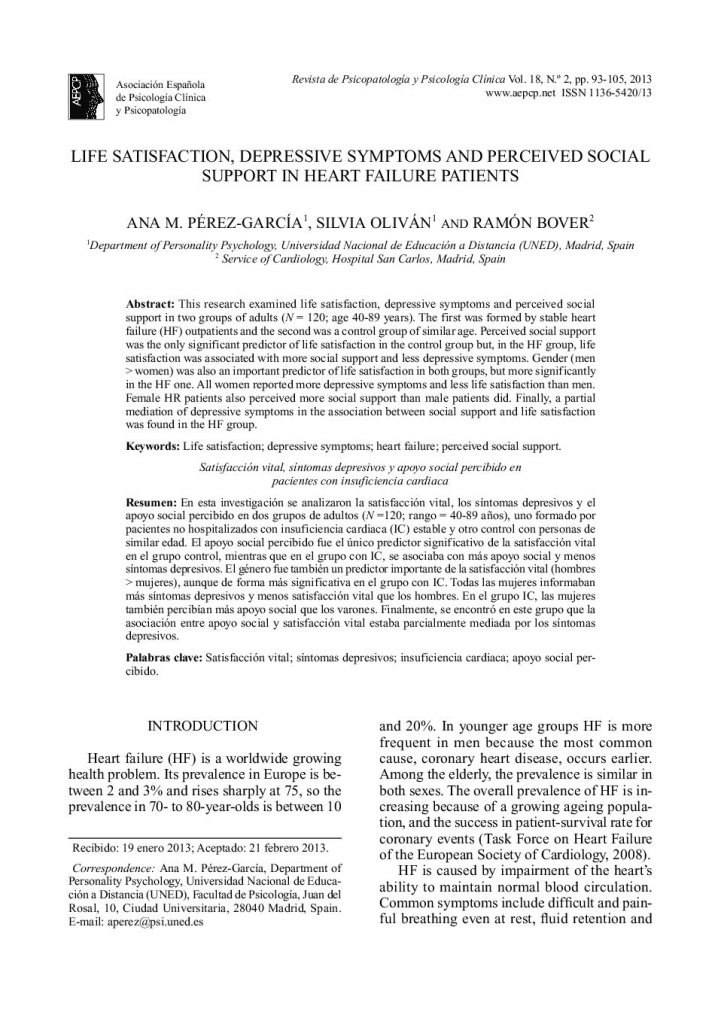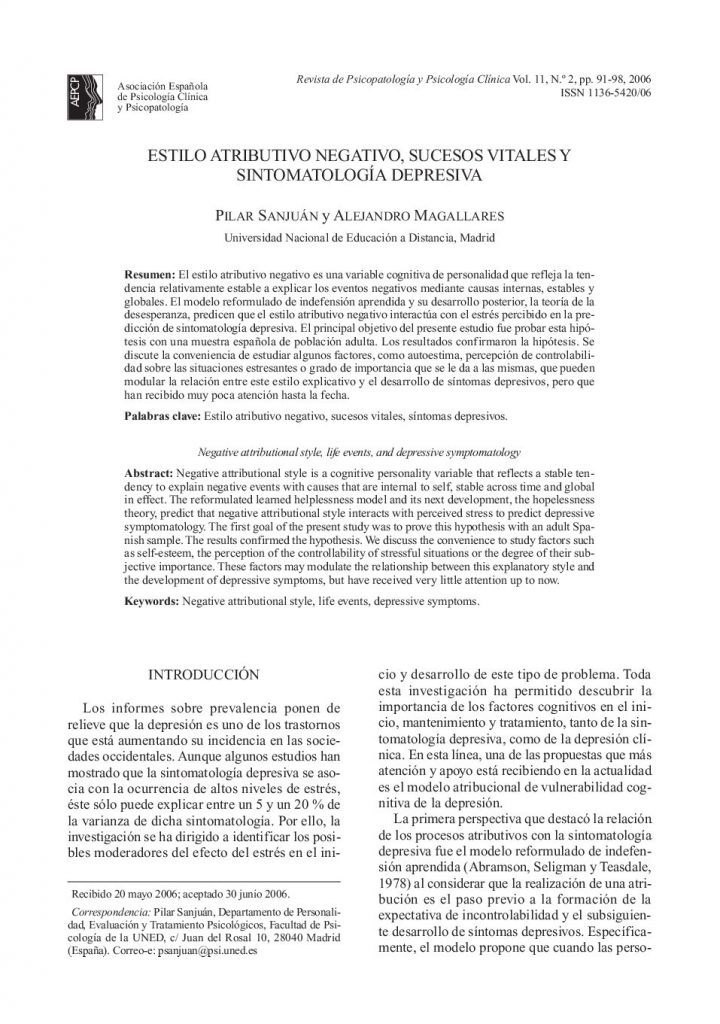Life satisfaction, depressive symptoms and perceived social support in heart failure patients.

- Life satisfaction, depressive symptoms and perceived social support in heart failure patients.
- Calidad de vida, resiliencia e ideación suicida en adolescentes víctimas de abuso sexual.
- Agresión física y verbal en hijos de familias monoparentales divorciadas y biparentales: El efecto moderador del sexo de los hijos.
- Anthony P. Morrison, Julia C. Renton, Hazel Dunn, Steve Williams y Richard P. Bentall (2012). Terapia cognitiva de la psicosis: Un enfoque basado en la formulación.
- Afectación emocional de los pacientes ingresados en una unidad de cuidados intensivos.
- Funcionamiento de la terapia cognitivo-interpersonal en los trastornos de la personalidad: Estudio de dos casos.
- El tempo cognitivo lento: Revisión de un constructo.
This research examined life satisfaction, depressive symptoms and perceived social support in two groups of adults (N = 120; age 40-89 years). The first was formed by stable heart failure (HF) outpatients and the second was a control group of similar age. Perceived social support was the only significant predictor of life satisfaction in the control group but, in the HF group, life satisfaction was associated with more social support and less depressive symptoms. Gender (men > women) was also an important predictor of life satisfaction in both groups, but more significantly in the HF one. All womenreported more depressive symptoms and less life satisfaction than men. Female HR patients also perceived more social support than male patients did. Finally, a partial mediation of depressive symptoms in the association between social support and life satisfaction was found in the HF group.
En esta investigación se analizaron la satisfacción vital, los síntomas depresivos y el apoyo social percibido en dos grupos de adultos (N =120; rango = 40-89 años), uno formado por pacientes no hospitalizados con insuficiencia cardiaca (IC) estable y otro control con personas de similar edad. El apoyo social percibido fue el único predictor significativo de la satisfacción vital en el grupo control, mientras que en el grupo con IC, se asociaba con más apoyo social y menos síntomas depresivos. El género fue también un predictor importante de la satisfacción vital (hombres > mujeres), aunque de forma más significativa en el grupo con IC. Todas las mujeres informaban más síntomas depresivos y menos satisfacción vital que los hombres. En el grupo IC, las mujeres también percibían más apoyo social que los varones. Finalmente, se encontró en este grupo que la asociación entre apoyo social y satisfacción vital estaba parcialmente mediada por los síntomas depresivos.




